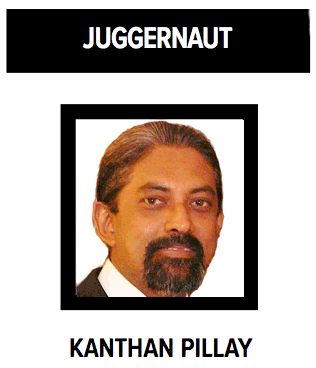
I was in a serious accident in 1999 which left me with a broken femur, shattered humerus, three cracked ribs on the left and two on the right, both lungs punctured… In 2012, I contracted viral encephalitis.
More recently, my youngest daughter was born 10 weeks premature in 2016 and spent the next six weeks in neonatal ICU.
Today, I’m in extremely good shape for someone two years shy of 60, and my daughter is as happy and healthy as one would like a 3 year old to be. We were both able to access world class treatment from the private sector, and medical aid picked up the bulk of those costs.
Last week, health minister Zweli Mkhize tabled the National Health Insurance Bill in Parliament.
And if that Bill had been law during any of the incidents I described, I or my daughter would be dead.
Yes, dead.
In the very first chapter, the NHI bill declares that The Competition Act is not applicable to any transactions concluded in terms of the NHI. This allows our government to create a monopoly controlled by the state. All South Africans will automatically become members of the NHI. All private medical schemes will be shut down.
If you are currently employed and pay for medical aid, you get a tax credit to offset some of that cost. This will now fall away. Government will take that money out of your income tax and put it into a pool, and make you pay additional taxes as well – about R256 billion extra per year will be needed.
If you currently have a GP who has been treating you for years, forget that. GPs will now be allocated a set number of patients they will be expected to treat, and there will be limits on how often you see a GP.
Are you pregnant and planning to have a Caesarean delivery? The NHI will not cover treatments that are not considered to be “medical necessities”, such as an elective C-section.
Are you used to buying your medicines from a pharmacy based on what your doctor prescribed? The state will now buy your medicines for you, but again, based on what it believes is correct. You will not have the choice to pay extra for original medication and will be forced to accept generic.
Are you concerned about doctor/patient confidentiality? Do you want the state to know you are on antidepressants or being treated for addiction? All of your medical records will now be held by the NHI.
Are you used to your GP giving you a referal to a specialist who sees you promptly? The NHI will now manage referals to specialists, and you must be prepared to join the queue.
On holiday from Durban in Cape Town and want to see a GP? Forget it. You need to get officially transferred first by filling out forms.
So you don’t mind paying extra for a specialist who charges more than medical aid rates because she is world class? Forget that too. Under the NHI, the Minister will set limits on how much any doctor can charge.
Is there an expensive drug keeping you alive that medical aid currently pays for? Under the NHI, it has to be “cost effective”. The two doses of Palivizumab antibody given to my premature daughter at R10 000 per dose would not be covered by NHI.
If you’re getting the impression that the entire NHI scheme is an unmitigated disaster waiting to happen, you are correct. The 11 pilot programmes run by the health department over five years at a cost of R4 billion failed to meet the basic target of improving peoples health.
But meanwhile, we should be serious about working toward universal health care for all South Africans.
Here’s how we should do it. Take the entire health budget of R226 billion and give the money in vouchers to the 50 million South Africans without medical aid.
They can then use these vouchers, R376 per month, to buy entry level medical aid from the existing providers.
There are many providers offering low cost plans. Example, Discovery Health’s entry level “Keycare Start” package costs R839 per month for adults and R505 per month for children. This provides cover for hospital, chronic illness, cancer, and day-to-day.
It would be a no-brainer from a business point of view for all providers to roll out tailored products at R376 per month. For example, students might only need hospital cover while the elderly might need chronic medication. As with schooling, individuals might choose to pay out of their own pocket for additional coverage.
State health care facilities can be handed over to existing hospital chains such as Netcare or Mediclinic. In exchange, they will be required to maintain a proportionate number of primary health care facilities across the country.
Government’s role needs to be ensuring minimum standards are maintained.
Such a system has worked very successfully in Israel since their universal health care act was passed in 1995. Israel today consistently features in the top ten healthiest countries in the world.
I see many constititional flaws in the NHI bill as drafted. I expect the resultant legal challenges to take a long time to be finalised. Let’s use that time to shift the conversation toward other, workable solutions.
